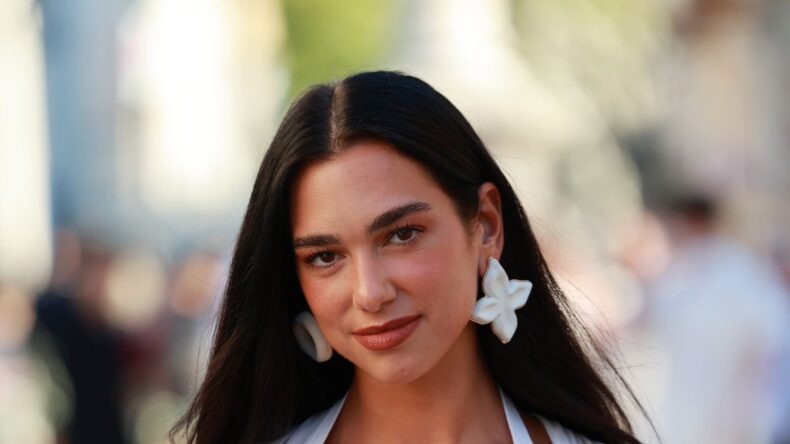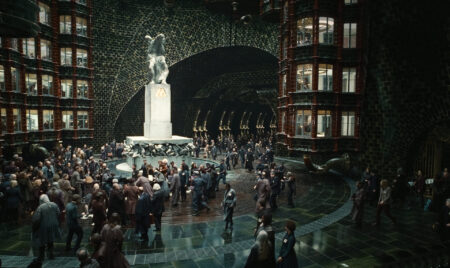Dua Lipa’s chart-topping hit “Levitating” has found itself embroiled in further legal woes, marking the third time the song has been targeted by a lawsuit. The latest legal entanglement stems from a multimillion-dollar copyright claim filed in Los Angeles by musician Bosko Kante. According to Kante, Dua Lipa and Warner Music Group allegedly utilized a recording made with his talk box in remixes of the single without proper authorization.
Source: Spotify
This recent lawsuit comes after a recent clearance of a previous legal issue surrounding the song. Despite successfully resolving the previous claim, the “Levitating” saga continues, as Kante’s claims threaten to cast a shadow over the song’s success.
The core of the dispute lies in the alleged unauthorized use of Kante’s talk box recording, a signature element that played a significant role in the song’s remixes. This legal tussle has raised questions about intellectual property rights and the importance of obtaining proper permissions and licenses when incorporating someone else’s work into a musical composition.
As the legal proceedings unfold, Dua Lipa, her team, and Warner Music Group must now navigate the intricacies of copyright law to address Kante’s claims. The case’s outcome could have far-reaching implications, not only for the artists involved but also for the music industry as a whole.
While “Levitating” has undoubtedly been a commercial and critical success, the legal challenges it faces highlight the complex nature of copyright in the digital age. As fans and industry stakeholders watch closely, the resolution of this lawsuit will shape the landscape of music creation, collaboration, and copyright protection in years to come.
In the lawsuit, Bosko Kante claims that there was a verbal agreement with the song’s creators, allowing his talk box recording to be used solely in the original version of the song, not in any future remixes. However, he alleges that this agreement was violated, leading to copyright infringement on multiple remixes. These remixes include the one featuring The Blessed Madonna, the highly popular version with rapper DaBaby, and even Dua Lipa’s performance at the American Music Awards. Kante is seeking damages exceeding $20 million for these alleged infringements.
Source: Pitchfork
According to reports, Bosko Kante has made several attempts to address the issue directly with Dua Lipa and Warner Music Group concerning the alleged copyright infringement. However, his efforts to resolve the matter without resorting to legal action have apparently been met with silence from the defendants. Despite Kante’s earnest efforts to find an amicable solution, he claims that both Dua Lipa and Warner Music Group have shown a lack of cooperation and have failed to acknowledge their role in what he perceives as a clear violation of his copyrights.
The lack of response from the accused parties has seemingly left Kante with no choice but to seek legal redress. Filing a multimillion-dollar lawsuit appears to be the last resort in his pursuit of justice and fair compensation for the unauthorized use of his talk box recording in the various remixes of “Levitating.”
The alleged infringement has sparked a contentious dispute, casting a spotlight on the intricacies of intellectual property rights within the music industry. As the legal battle unfolds, music creators, artists, and industry professionals will closely observe the case’s outcome and its potential ramifications for future collaborations and remixes in the music world.
In the face of a seemingly impasse dialogue, the court system will now play a crucial role in determining the legitimacy of Kante’s claims and the extent of Dua Lipa and Warner Music Group’s responsibility in the alleged copyright violation. The case serves as a reminder to artists and music industry stakeholders of the significance of adhering to copyright laws and obtaining proper permissions when incorporating others’ work into their projects.
Ultimately, the resolution of this legal battle will shape the dynamics of artist collaborations and the protection of intellectual property, potentially setting precedents that may impact the industry for years to come.
In 2022, a Florida-based reggae band, Artikal Sound System, alleged that Dua Lipa had plagiarized the core hook of “Levitating” from their 2017 song titled “Live Your Life.” However, the case was eventually dropped in June 2024 after a judge ruled that there was no substantial evidence proving that the creators of “Levitating” had prior access to the reggae band’s track.
Another legal challenge emerged in 2022 when songwriters L Russell Brown and Sandy Linzer claimed that the melody used in “Levitating” was taken from their relatively obscure songs from decades earlier, “Wiggle and Giggle All Night” from 1979 and “Don Diablo” from 1980. Dua Lipa’s legal team defended her by arguing that she had never come across either of these tracks before composing “Levitating.”
These instances highlight the ongoing legal complexities surrounding music copyright and the common accusations of song theft in the music industry.













